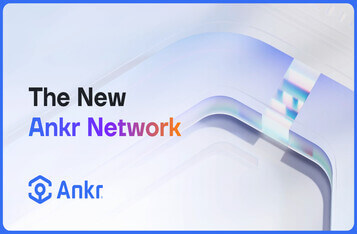Ankr has revealed plans to augment its RPC service by integrating with the Sei blockchain. This development aims to facilitate developers keen on leveraging the Sei platform for the creation of swift and scalable decentralized applications (dApps). The integration will enable users to access both Sei Public and Premium RPCs, allowing them to make request calls and receive responses akin to those from a Sei full node.
Sei’s Position in the Blockchain Space
Sei aspires to lead as the swiftest layer-1 blockchain, a feat achieved through its “Twin-Turbo” consensus mechanism. The blockchain boasts minimal transaction fees and a throughput rate of 20,000 ops (orders per second). Designed to support contemporary applications, Sei aims to expedite the widespread acceptance of digital assets. The recent launch of their public Pacific-1 mainnet in August has garnered attention and anticipation from the developer community.
Ankr’s Role with Sei RPC API Connections
Ankr’s Sei RPCs (Remote Procedure Calls) serve as a bridge connecting wallets, user interfaces, and dApps to the Sei blockchain. These RPCs function as intermediaries, transmitting on-chain data between Sei nodes, dApps, and end-users. This facilitates essential operations such as transaction execution, wallet balance retrieval, and ownership data extraction.
The Sei RPC endpoints provide developers with a direct channel to the Sei network, eliminating the need for them to navigate the intricacies of setting up Sei nodes on their own. Ankr’s offering includes a geo-distributed Sei RPC, underpinned by blockchain nodes operating globally, ensuring minimal latency and dependable connections.
Benefits for Developers
Opting for Sei as a foundation for dApps necessitates access to Sei node data. Ankr’s RPC addresses this requirement by:
Simplifying Node Operations: Ankr’s Sei RPCs negate the need for developers to establish their Sei nodes, saving them considerable time and effort.
Providing Access to Advanced Tools: Subscribers to Ankr’s Premium RPC Plan gain immediate access to a suite of advanced tools, including the capability to handle up to 90,000 Sei requests/min, high request priority, global node locations, telemetry, debug mode, a dedicated support portal, and WebSocket (WS) functionalities.
Empowering Applications: Ankr’s RPC facilitates the connection to a cluster of high-performance nodes essential for the development and operation of dApps with Sei blockchain functionalities.
Strengthening the Sei Network: Ankr’s integration will bolster the Sei network on a global scale by simplifying development processes and expanding the node infrastructure.
In the near future, Ankr’s RPC service will feature Sei as a supported option, allowing users to interact with the Sei chain using standard EVM JSON RPC methods.
About ANKR
Ankr is a decentralized blockchain infrastructure provider with nodes distributed across Proof-of-Stake networks. It offers multi-chain tools for Web3 users, including developer solutions like APIs and tools for accessing blockchain data. Ankr Earn facilitates staking and yield-earning opportunities, while Ankr Learn provides educational resources. Founded in 2017 by Chandler Song, Ryan Fang, and Stanley Wu, Ankr stands out as a decentralized alternative to centralized solutions like AWS Blockchain. The ANKR token, available on multiple networks, is essential for transactions, payments, and governance within Ankr’s ecosystem. The maximum ANKR token supply is 10,000,000,000.
Disclaimer & Copyright Notice: The content of this article is for informational purposes only and is not intended as financial advice. Always consult with a professional before making any financial decisions. This material is the exclusive property of Blockchain.News. Unauthorized use, duplication, or distribution without express permission is prohibited. Proper credit and direction to the original content are required for any permitted use.
Image source: Shutterstock
